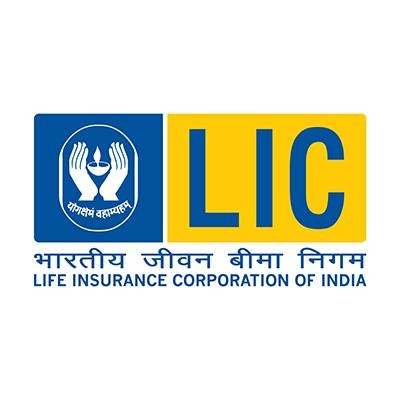#IDBIBank #LIC #Privatisation #SEBI #BankingReforms #Disinvestment #IndianEconomy #BankingSector #StrategicSale #PublicShareholder #GovtOfIndia #FinancialReforms #CapitalMarkets
Mumbai: In a major development that moves India closer to the long-awaited privatisation of IDBI Bank, the Securities and Exchange Board of India (SEBI) has cleared the reclassification of Life Insurance Corporation of India (LIC) as a public shareholder in the bank. The move marks a significant milestone in the government’s strategic sale process and signals regulatory preparedness to advance one of India’s most closely watched disinvestment transactions.
Background: LIC’s Role in IDBI Bank
LIC, the country’s largest life insurer and a state-owned behemoth, became the majority shareholder in IDBI Bank in 2019 when it infused capital into the struggling lender. The investment gave LIC a 51% controlling stake, making it the single largest shareholder and effectively giving it management control.
Since then, IDBI Bank has undergone a gradual transformation, including efforts to strengthen its balance sheet, improve asset quality, and return to profitability. The bank exited the Reserve Bank of India’s (RBI) Prompt Corrective Action (PCA) framework in 2021, a necessary step toward privatisation.
However, LIC’s controlling stake meant the insurer was classified as a promoter of IDBI Bank. For the government to move forward with privatising the lender, LIC needed to be reclassified as a public shareholder, reducing complexities in ownership and control during the strategic sale.
SEBI Approval
SEBI’s approval to reclassify LIC as a public shareholder clears this critical regulatory hurdle. The reclassification ensures that after LIC’s stake is reduced through the sale process, it will not retain promoter obligations such as disclosure requirements or restrictions that come with promoter status.
The regulator’s nod is expected to facilitate smoother stake dilution and pave the way for potential investors—both domestic and global—to participate in the sale with greater clarity around ownership structures.
Next Steps in Privatisation
The government, which currently holds about 45.5% stake in IDBI Bank, plans to reduce its shareholding alongside LIC to enable transfer of management control to a strategic buyer. Combined, the government and LIC together own around 94.7% of the bank, and the plan is to sell a substantial portion of this to private investors.
Officials have indicated that the sale process could involve offering a controlling stake of around 60.7%, with both the government and LIC jointly divesting their shares. With SEBI’s reclassification approval, LIC’s exit will now be treated as a market transaction rather than a promoter divestment, making the process more straightforward.
The Department of Investment and Public Asset Management (DIPAM), which oversees the government’s disinvestment programme, is expected to push ahead with the next stages, including issuing requests for proposals (RFPs), inviting bids, and finalising the transaction structure.
Strategic Importance
The privatisation of IDBI Bank is considered one of the most ambitious banking sector reforms undertaken by the government. It would mark the first instance of the Indian government fully relinquishing management control of a public sector bank.
For investors, IDBI Bank offers a unique opportunity. With an extensive branch network, strong retail presence, and improving financial metrics, it is positioned as an attractive acquisition target for both domestic financial institutions and global players looking to enter India’s rapidly growing banking market.
Moreover, the transaction is being closely watched as a test case for future privatisations in the banking sector. A successful sale could set the stage for similar initiatives with other public sector banks in the coming years.
LIC’s Position
For LIC, the move is also significant. The insurer has long faced concerns about its exposure to IDBI Bank, given the bank’s troubled past and LIC’s large investment. The gradual turnaround of IDBI Bank has eased some of those worries, but divestment allows LIC to refocus on its core insurance business.
Reclassification as a public shareholder ensures LIC will not carry promoter responsibilities once its stake is diluted. This also addresses concerns among prospective investors that LIC’s continued promoter role could complicate governance structures.
Market Reactions
Analysts believe SEBI’s nod will act as a strong signal to investors about the seriousness of the government’s privatisation agenda. “The reclassification of LIC as a public shareholder removes a major hurdle in the IDBI Bank stake sale. This will give comfort to strategic investors, particularly global players, who were seeking regulatory clarity before making commitments,” said a banking sector analyst with a leading brokerage.
Shares of IDBI Bank have shown volatility in recent months amid speculation over the timing of privatisation. Market experts expect renewed investor interest as the disinvestment process gains momentum following SEBI’s approval.
Challenges Ahead
Despite this progress, challenges remain. Attracting a suitable strategic buyer for a majority stake in a bank requires careful balancing of regulatory, financial, and operational considerations. Potential bidders will evaluate IDBI Bank’s asset quality, growth prospects, and liabilities before making offers.
Furthermore, global economic uncertainties and regulatory requirements for ownership in Indian banks may influence the pool of interested investors. Nevertheless, with improving financials and government backing, IDBI Bank’s privatisation remains one of the most promising opportunities in the Indian financial sector.
Conclusion
SEBI’s decision to reclassify LIC as a public shareholder represents a decisive step forward in the government’s privatisation roadmap for IDBI Bank. It simplifies ownership structures, removes regulatory roadblocks, and creates a clearer path for stake dilution.
As the government and LIC prepare to offload their holdings, attention will now turn to prospective buyers and the structure of the deal. If successful, the privatisation of IDBI Bank will not only transform the lender’s future but also mark a watershed moment in India’s approach to banking sector reforms and disinvestment.

